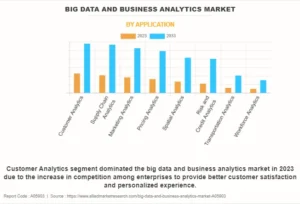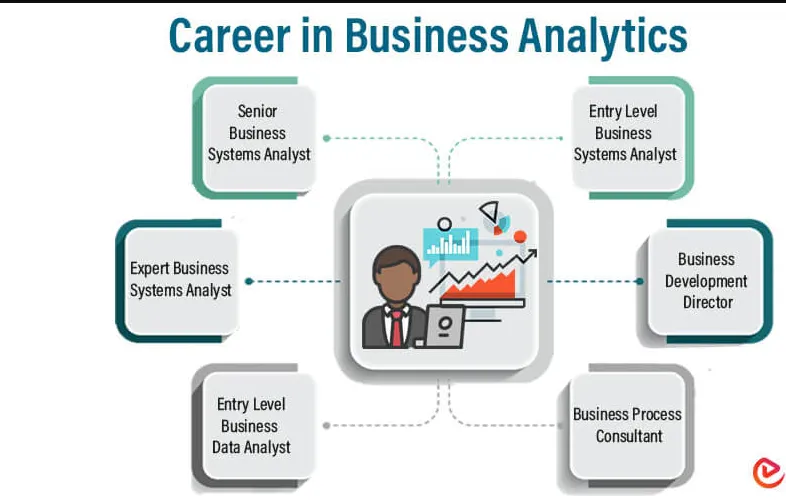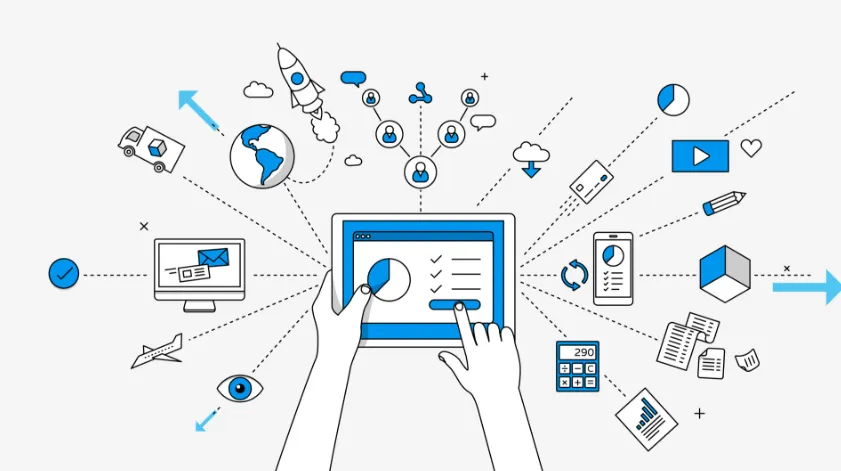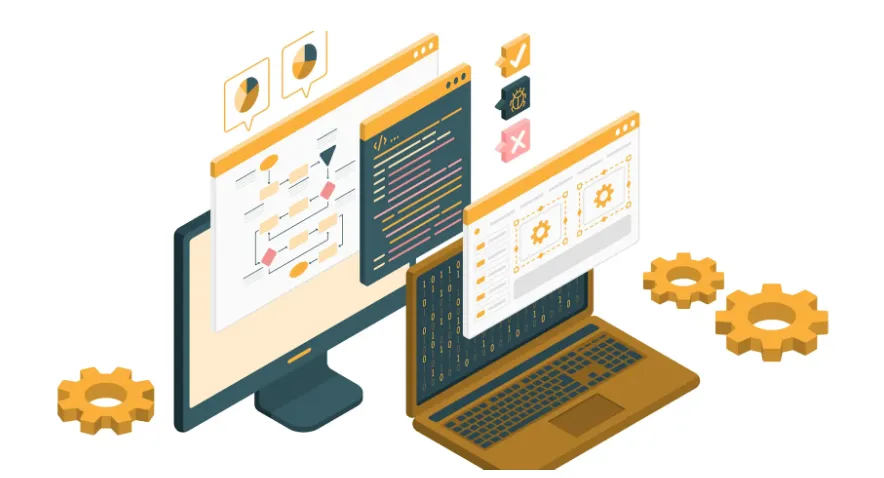Ms Business Analytics, the field focuses on using data to inform strategic business decisions. It blends data expertise, technology, and business acumen to drive performance.
Business Analytics stands at the crossroads of big data and business intelligence, where data is translated into actionable insights for strategic planning and operational efficiency. This specialized domain harnesses statistical analysis and predictive modelling to evaluate past performance, guide future business planning, and help organizations pivot towards profit-maximizing strategies.
Professionals in this field leverage various analytical models to process complex data sets, identify trends, and forecast potential outcomes, becoming vital assets to data-driven companies. The goal is to enable better decision-making through data visualization and advanced analytics techniques, integrating structured and unstructured data. The demand for skilled business analysts soars as data grows in volume, variety, and velocity, making it a sought-after career for those with quantitative skills and strategic thinking.
Contents
- 1 The Surge Of Data Analytics In Business
- 2 Ms Business Analytics At A Glance
- 3 Diverse Industries Embracing Analytics
- 4 Career Pathways After Ms Business Analytics
- 5 Emerging Roles In The Analytics Space
- 6 Entrepreneurial Opportunities In Analytics
- 7 Future Outlook For Analytics Professionals
- 8 Preparing For Success In Business Analytics
- 9 Navigating The Job Market
- 10 Alumni Success Stories
- 11 Conclusion
The Surge Of Data Analytics In Business

The Surge of Data Analytics in Business is undeniable in today’s rapidly advancing world. Companies leverage vast amounts of data to drive decisions and stay competitive. As a result, data analytics has become a cornerstone in shaping business strategies.
The Role Of Analytics In Modern Enterprises
Businesses today thrive on data-driven decisions. Data analytics tools are vital for understanding market trends, customer preferences, and performance metrics. They help in:
- Identifying Patterns: Tools analyze past and present data to forecast future trends.
- Improving Customer Experiences: Analytics reveal customer behaviours and needs.
- Optimizing Operations: Companies streamline processes for efficiency and cost reduction.
Organizations across sectors, from retail to healthcare, use analytics to inform their tactics and long-term strategies.
Growing Demand For Data-savvy Professionals
The need for professionals who can interpret and utilize data is rising. Business Analytics degree holders are sought after for their ability to:
| Skills | Applications |
| Data Mining | Extracting valuable insights from datasets |
| Statistical Analysis | Making predictions based on data trends |
| Data Visualization | Presenting data in understandable formats |
From analysts to data scientists, these professionals are essential in transforming data into strategic assets.
Ms Business Analytics At A Glance
Ms Business Analytics programs equip students with the ability to make data-driven decisions. These programs blend technology and business strategies. Students dive deep into analytics, from big data to predictive analysis.
Core Components Of The Program
The program’s core areas focus on comprehensive data expertise. Each aspect ensures a robust understanding of business analytics.
- Data Management: The backbone for sorting and storing data meaningfully.
- Statistics and Analysis: Tools for interpreting complex data sets.
- Information Technology: Understanding how IT supports analytics.
- Business Intelligence: Techniques for transforming data into insights.
- Practical Application: Real-world problem-solving experiences.
Essential Skills Acquired
Students acquire critical abilities unique to business analytics. These skills are crucial for success in the field.
- Data Interpretation: Making sense of complex datasets.
- Problem Solving: Identifying and addressing business challenges.
- Communication: Conveying findings to stakeholders.
- Technical Prowess: Mastering analytical software and tools.
- Strategic Thinking: Anticipating and planning for future trends.
Diverse Industries Embracing Analytics
Analytics is a powerful tool transforming various sectors today. More industries recognize the need to analyze data and gain insights. This leads to smarter decisions and increased efficiency. From managing risks in finance to improving patient care in healthcare, analytics is changing the game. Let’s explore its role in different sectors.
Analytics In Finance And Banking
The finance world moves fast. Banks need to keep up. Analytics helps banks stay ahead. They use data to manage risks and understand customers. Here are vital uses:
- Risk Management: Data helps identify and manage potential risks.
- Customer Insights: Banks analyze behaviours to offer better services.
- Fraud Detection: Quick data analysis spots suspicious activities.
- Investment Strategies: Traders use data for better decision-making.
Healthcare Analytics For Better Outcomes
In healthcare, patient care is a top priority. Analytics provides healthcare professionals with tools to enhance patient outcomes. Here’s how:
- Treatment Personalization: Data predicts what treatments work best for patients.
- Operational Efficiency: Hospitals use data to run smoother and cut waiting times.
- Preventive Care: By analyzing health trends, doctors prevent diseases before they spread.
- Research: Analytics helps discover new medical insights.
Career Pathways After Ms Business Analytics
Career pathways after an MS in Business Analytics open doors to an exciting world of data-driven decision-making. The degree equips graduates with skills to mine, interpret, and apply data in various business contexts. This knowledge sets the stage for high-demand roles within diverse industries.
Data Scientist: The New Gold
Data Scientists are the modern-day alchemists of the business world. They turn raw data into valuable insights. This transformative ability makes them highly sought after in today’s data-centric economy. An MS in Business Analytics provides the skills necessary to thrive in this role. Key responsibilities include:
- Exploring and analyzing complex datasets.
- Building predictive models to forecast trends.
- Applying machine learning algorithms.
- Communicating findings to stakeholders.
Data Scientists work across sectors such as finance, healthcare, and technology. They are essential in driving innovation and competitive advantage.
Business Analyst: Bridging Data And Decisions
A Business Analyst serves as the nexus between data insights and business strategy. They help firms make informed decisions through data interpretation. With an MS in Business Analytics, you can step into this central role. Core tasks involve:
| Function | Description |
| Data Gathering | Collecting relevant data for analysis. |
| Problem-Solving | Identifying business challenges using data. |
| Process Improvement | Enhancing business processes based on insights. |
| Reporting | Sharing insights with decision-makers. |
As a Business Analyst, your role can range from consultant to project manager. Your insights can shape businesses’ future, making your contribution invaluable.
Emerging Roles In The Analytics Space
The world of business analytics is evolving rapidly. New roles keep emerging as companies harness the power of data. These roles offer exciting opportunities for problem-solvers and innovators. Machine Learning Engineers and Analytics Consultants are two roles redefining the analytics landscape. Talented professionals in these areas help businesses make smarter decisions and stay competitive.
Machine Learning Engineer: Beyond Analytics
- Machine Learning Engineers craft intelligent systems that learn from data. They build algorithms that enable machines to make decisions without direct human input. This role requires a blend of software engineering and data science skills.
- Key responsibilities include designing machine learning systems, improving data quality, and effectively deploying models. These engineers work on projects such as voice recognition services, recommendation systems, and autonomous vehicles.
- Prospects for career growth in this field are high due to the rising demand for AI solutions. Machine Learning Engineers need solid mathematical foundations, programming proficiency, and an in-depth understanding of data analysis.
Analytics Consultant: Advising Businesses
- Analytics Consultants guide businesses through the maze of data. They translate complex data into actionable insights. These professionals are essential for companies looking to leverage data for strategic advantage.
- They work across various industries, advising on the best analytics practices. Practical communication skills are crucial, as they need to explain their findings to executive teams and stakeholders.
- As an Analytics Consultant, one must be adept at data visualization tools and statistical analysis and understand business dynamics. They act as a bridge between data science and business strategy.
Entrepreneurial Opportunities In Analytics
The rise of big data and advanced analytics has opened a treasure trove of entrepreneurial opportunities. Individuals with a Master’s in Business Analytics possess the toolkit to interpret complex information and transform it into innovative business models.
Starting Up In Analytics
Starting an analytics business is a pathway to driving change in various industries. Here are key areas to focus on:
- Market Analysis: Offering services to understand consumer behaviour and trends.
- Operational Efficiency: Helping companies streamline their processes.
- Financial Forecasting: Assisting businesses in predicting future revenues and expenses.
Entrepreneurs can develop platforms that help companies make data-driven decisions.
Products And Services In The Analytics Domain
| Product/Service | Description | Target Market |
| Customer Insights Tool | Software that analyzes buying patterns. | Retail businesses |
| Predictive Maintenance | Systems that forecast equipment failure. | Manufacturing Companies |
| Supply Chain Optimizer | Application that enhances logistics efficiency. | E-commerce platforms |
Products that offer real-time analytics, personalization, and automation occupy the forefront of entrepreneurial ventures. Providing such services empowers businesses to excel in their respective industries.
Future Outlook For Analytics Professionals
The world of business analytics is ever-evolving. New tools, techniques, and theories emerge regularly. Skilled analytics professionals can look forward to a dynamic career landscape. Opportunities will continue to flourish as industries recognize the value of data-driven decisions. Exploring the future outlook for analytics professionals reveals a landscape marked by continuous growth and the need for perpetual learning.
Continuous Learning And Adaptation
The field of business analytics demands constant education. To stay relevant, professionals must embrace new trends. They must fine-tune their skills to align with emerging technologies. This might involve:
- Enrolling in workshops to learn about new software
- Attending conferences to network and discover industry changes
- Acquiring certifications in advanced analytics techniques
- Joining online courses to strengthen data interpretation skills
Such commitment ensures professionals not only survive but thrive in this competitive arena.
Predicted Market Trends In Analytics
Tracking market trends is crucial for business analytics experts. Predictions influence the strategies they formulate. Key trends anticipated include:
| Trend | Impact |
| Artificial Intelligence | Streamlining data processes |
| Machine Learning | Enhancing predictive analytics |
| Big Data | Improving decision-making capabilities |
| Cloud Computing | Fostering remote collaboration |
The increased reliance on analytics means professionals must adapt quickly. They should grasp these trends to offer invaluable insights to their organizations.
Preparing For Success In Business Analytics
Launching a career in Business Analytics is thrilling. It would help if you had the right mix of skills, experience, and connections to stand out. Let’s dive into how to build a competitive edge and nurture your professional journey.
Building A Competitive Professional Profile
A strong profile showcases your expertise and accomplishments. Begin with a robust educational foundation, like an MS in Business Analytics. Add certifications to sharpen your skill set. Internships and projects are gold mines for practical experience. Here’s a quick checklist:
- Advanced Degrees: An MS in Business Analytics tops the list.
- Certifications: Pursue relevant analytics and data certifications.
- Practical Experience: Secure internships or take on real-world projects.
- Technical Skills: Master tools like Python, R, and SQL.
- Soft Skills: Hone communication and problem-solving abilities.
Networking And Continuous Professional Development
Networking opens doors to opportunities and insights. Attend industry conferences, join professional groups, and connect online. Develop relationships with mentors and peers. Never stop learning – the field evolves fast. Look for webinars, courses, and articles to stay updated. Balance networking with your personal growth:
| Networking Actions | Professional Growth |
| Attend analytics conferences | Enroll in continuous learning programs |
| Join professional groups | Read the latest industry publications |
| Engage on LinkedIn | Update skills with new technology courses |
By focusing on these areas, you’re well on your way to crafting a successful career in Business Analytics.
Stepping into the professional world with an MS in Business Analytics opens many opportunities. The journey to land your dream job can be straightforward with the right strategies. In this section, we dive into effective job search tactics and highlight why internships are crucial for a successful analytics career.
Effective Job Search Strategies In Analytics
Understanding industry needs lays the foundation for a targeted job search. Here are some strategies to consider:
- Build a professional network through industry events and online platforms such as LinkedIn.
- Customize your resume to match job descriptions, highlighting relevant skills and projects.
- Utilize job boards specializing in analytics, such as Crunch Data and Kaggle Jobs.
- Prepare for interviews by brushing up on analytical tools and software commonly used in the field.
- Consider working with a career coach to polish your interview skills and resume.
The Importance Of Internships And Real-world Experience
Internships are a stepping stone for a successful career in business analytics. They help you:
- Apply academic knowledge to solve real-world business problems.
- Gain hands-on experience with analytical tools and software.
- Develop professional relationships that could lead to future job offers.
- Understand the workplace dynamics of analytics teams.
Internship experiences often become the highlights of your resume, showing employers that you’re ready to hit the ground running. Seek out internship opportunities with companies renowned for their analytics divisions to ensure you get valuable insights and experience.
Alumni Success Stories
An MS Business Analytics degree paves the way to a bright future. Remarkable stories from alums inspire us. They showcase the program’s real-world impact. Success whispers tales of transformation and accomplishment. Let’s dive into the inspiring careers that started with a foundation in business analytics.
Inspiring Careers Of Ms Business Analytics Graduates
Graduates from the MS Business Analytics program are breaking barriers. They’ve risen to impressive ranks. Names we celebrate belong to CEOs, data scientists, and more. Each path is unique but united by a common root: data expertise. Let’s look at where this degree has taken some illustrious alumni.
- John Doe: From analyst to CTO at a tech giant
- Jane Smith: Her startup is reshaping retail analytics
- Alex Johnson: Leading supply chain innovations globally
Interviews With Industry Leaders
Talking with leaders tells us where the industry heads. These interviews are a window into their careers. We gain insights, trends, and career tips. Words from movers and shakers offer guidance. It’s a treasure for up-and-coming professionals.
| Name | Position | Company |
| Emily Carter | Data Strategy VP | FinanceGenius |
| Marcus Lin | Head of Analytics | MarketMovers |
| Sophia Trent | BI Lead | EcoTechSolutions |
These stories and interviews can be a guide. They shed light on the paths you can take. Each story is a beacon of inspiration. Their advice is gold for future graduates.
Conclusion
Navigating the complexities of data is pivotal for contemporary businesses. A Master’s in Business Analytics sharpens this expertise. With core skills honed, graduates emerge as invaluable assets. Whether you aim to propel your career or revolutionize data strategies, this degree paves the way for success.









